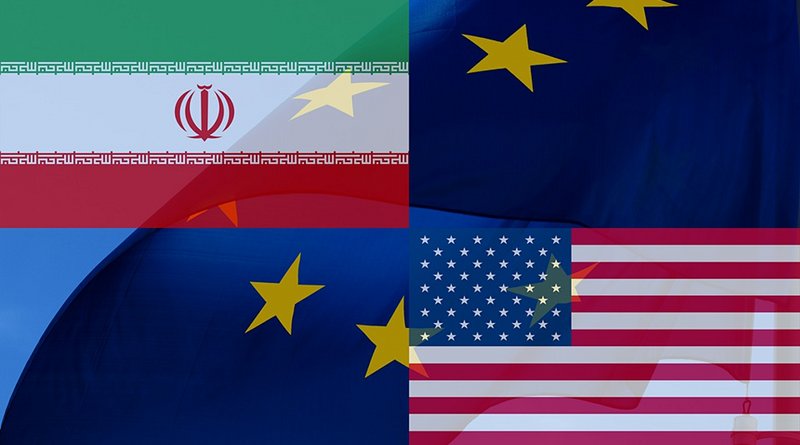US, Iran Play Down Hopes Of Quick Fix Ahead Of Talks On Reviving Nuclear Deal
By RFE RL
(RFE/RL) — U.S. and Iranian officials have each tamped down expectations ahead of EU-brokered talks set to begin in Vienna on April 6 that mark the most direct effort since the handover of power in Washington to revive the 2015 Iran nuclear deal.
Washington predicted the meetings would be “difficult” and steered clear of talk of a breakthrough, while Tehran insisted that it is “neither optimistic nor pessimistic” and will not abandon its demand that U.S. sanctions be lifted before it acts.
U.S. and Iranian officials are scheduled to take part in the talks — the first serious effort to revive the pact — with European officials expected to act as intermediaries.
They will include representatives from each of the countries that agreed to the so-called Joint Comprehensive Plan Of Action (JCPOA) — Britain, China, France, Germany, Russia, the United States, and Iran.
“We are not optimistic, nor pessimistic, about the outcome of this meeting now, but we are confident that we are on the right track,” Iranian government spokesman Ali Rabiei told reporters. “If America’s will, seriousness, and honesty is proven, it could be a good sign for a better future for this agreement and ultimately its full implementation.”
Iran has ruled out face-to-face bilateral discussions and last week denied reports that indirect negotiations would take place between the two countries’ negotiators.
“What other parties to the deal do is their business. Where and how they negotiate with the United States is up to them,” Iranian media quoted Foreign Ministry spokesman Saeed Khatibzadeh as saying just hours before the meeting. “The Iranian delegation will not have any talks with the U.S. delegation in Vienna at any level.”
U.S. State Department spokesman Ned Price said on April 5 that the United States does not “underestimate the scale of the challenges ahead.”
“These are early days,” Price said. “We don’t anticipate an early or immediate breakthrough, as these discussions, we fully expect, will be difficult.”
Under the JCPOA, economic sanctions on Iran were eased in return for curbs on the country’s nuclear program, which Tehran denies is for weapons development.
The United States unilaterally pulled out of the agreement in 2018 under former President Donald Trump, who reimposed crippling economic sanctions. Iran reacted by gradually reducing its commitments under the deal, including higher uranium enrichment.
U.S. President Joe Biden has signaled his readiness to revive the accord, but his administration says Iran must first return to its nuclear commitments.
“We certainly expect that the primary issues that will be discussed over the course of the coming days are the nuclear steps that Iran would need to take in order to return to compliance with the terms of the JCPOA and the sanctions relief steps that the United States would need to take in order to return to compliance as well,” White House spokeswoman Jen Psaki said.
She added that the U.S. side doesn’t anticipate that there will be direct talks with Iran, “though we remain certainly open to that prospect.”
But Tehran has reiterated that its initial focus is on the elimination of U.S. sanctions.
“Our agenda during the meeting [in Vienna] will be the removal of all U.S. sanctions against Iran…. As our supreme leader has said repeatedly, anything less than that will not be accepted by Tehran,” Reuters quoted an unnamed Iranian official as saying on April 6.
Price said the United States is approaching the talks in Vienna “with urgency,” saying the “breakout time” if Iran decides to pursue a nuclear bomb had diminished since the U.S. withdrawal.
He reiterated that the United States is ready to look at lifting sanctions — but only those related to the nuclear issue.
Referring to the accord’s text, he said, “The original formulation is one that still holds today: It’s the limited lifting of nuclear sanctions in return for permanent and verifiable limits on Iran’s nuclear program.”
U.S. Special Envoy for Iran Rob Malley will lead the U.S. delegation, and diplomats from the other countries that signed the JCPOA — Britain, China, France, Germany, Russia, and Iran — will also take part in the EU-brokered talks.
The four nuclear powers plus Germany — the so-called 4+1 — are eager to see the return of the United States, but technical and political challenges remain for all parties that could easily scuttle any progress.
Iran has said it wants the United States to lift all sanctions and rejects any “step-by-step” easing of restrictions.
“We have only one step, not step-by-step, [which] includes the lifting of all U.S. sanctions,” Iranian Foreign Ministry spokesman Saeed Khatibzadeh said, speaking in Tehran on April 5.
Khatibzadeh said experts from the Iranian delegation would explain how Iran plans “to stop our remedial measures,” adding that whether the agenda produces a result “depends on the Europeans and the 4+1 reminding the U.S. of its obligations and the Americans acting on their commitments.”

